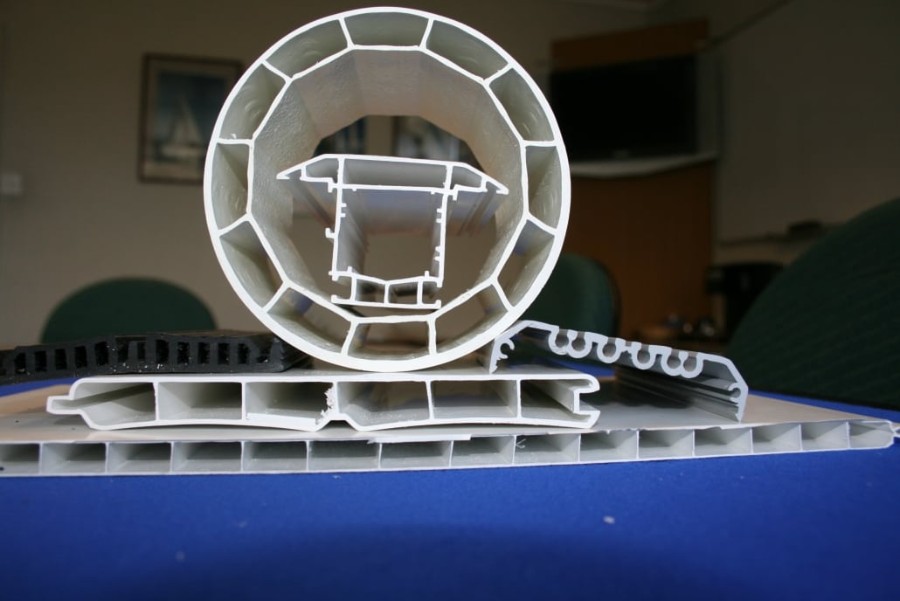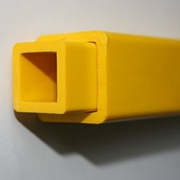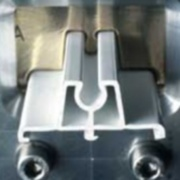DW Plastics Ltd
We are specialist plastic extrusion manufacturers producing high-quality custom plastic extrusion profiles. As experienced and customer-orientated plastic extrusion manufacturers, we supply high volume plastic extrusions at competitive prices to a variety of customers across wide range of trade sectors.
We are plastic extrusion manufacturers and our well-equipped factory has a wide range of extrusion equipment, allowing for the manufacture of a great variety of plastic extrusion products for many industry sectors.
Our manufacturing facilities provide the flexibility to produce PVC extrusions in a variety of shapes, sizes and colours. Our extrusion lines can handle tubes up to 160mm in diameter and profiles up to 350mm wide.
-
Our Commitment To Recycling & The Environment
2 August 2019The company recognizes its responsibility to help protect our environment and aims to conduct its business activities in such a manner as to minimize any adverse environmental impact. We constantly look for safer and better ways to enhance manufacturing processes and always try to protect and conserve the environment by pursuing a more ethical and sustainable approach to business.
We assume responsibility for the environment by minimising the harmful effects of the company’s operation and by ensuring appropriate management of generated waste. We ensure that we have control over our waste handling as dealing with waste management efficiently through recycling not only also makes sense financially, it has a huge positive impact on the environment.
We have invested in specialist equipment to recycle our waste products, such as single-use plastics and cardboard, which helps us to meet our obligations to the local community and government legislation. The company is committed to taking whatever action possible to ensure that all waste does not leave our premises unless correctly handled. The company actively encourages recycling both internally by promoting environmental awareness to our employees, and among our suppliers and customers where possible.
To minimize the environmental impact of both manufacturing and distribution we manage supply carefully. We try to economise on raw materials, conserve energy and water, and minimize the use of environmentally damaging and non-recyclable materials.
We have invested in machines that re-grind processed plastic so that it can be recycled and fed back into the production process if requirement allows. We also use re-processed material in many of the extrusion product profiles that we produce. We support the circular economy as much as possible.
Many products manufactured are used as alternatives to replace products made from natural resources. For example, DWP manufactures synthetic decking products as alternatives to real teak or real wood. Using these substitutes helps to reduce the demand for natural teak and therefore reduces the deforestation of natural teak forests, for example, Burmese teak, the import of which has been banned in certain European countries. Poor quality, farmed teak only lasts a few years in the marine environment, and PVC decking has better thermal, slip resistance and acoustic properties with a long-life expectancy.
-
Plastics – Not To Be Thrown Away But Recycled Properly
2 August 2019Plastics are one of the most useful materials ever discovered. The generic term of ‘plastic’ covers many very different materials. It includes organic materials like cellulose acetate to highly specialised engineering materials like PTFE or carbon fibre. Plastics are used in nearly all industries and are an integral part of some industry sectors such as automobile, medical, aeronautical, electronics, to name but a few. Often the switch to plastics is driven by environmental considerations, e.g. saving of natural resources such as forests, metals, and energy conservation through weight reduction. Plastics are lightweight, easy to process, relatively inexpensive and readily available and because of these benefits, their importance to competing materials is constantly increasing.
Plastics in different formulations have been with us now for over a century and due to the versatility and usefulness of the materials are here to stay. Nowadays a world without plastics would be almost impossible. For example, there are very few alternative materials that can be used in hospital operating theatres – lightweight and hygienic. PVC is used in buildings for wiring and insulation, UPVC windows replace wood, last longer and do not need to be treated every few years. UPVC windows are easily recycled and the reprocessed material has a good commercial value.
D W Plastics manufactures long-life plastic products and does not make single-use products. Many products are made in UPVC or PVC, the properties of which have excellent sustainability criteria. PVC has also proven to be repeatedly recyclable providing the potential for a further important reduction of its environmental footprint. It is important that recyclability is taken into account from the very beginning, as early as the product design stage. Some plastics are not compatible with each other when recycled, so this should be considered during the design phase of any plastic products.
The European plastics industry, and particularly the PVC industry, is pro-active its approach and commitment to recycling and material development. However, it is a worldwide problem which will involve cooperation from other countries. We are all responsible for the prevention of plastic waste pollution around the globe and must ensure that the waste does not end up in our countryside, rivers and oceans. One of the key elements is education and, organisations, like the United Nations and Greenpeace, and TV documentaries are essential in highlighting and publicizing the damage caused to the natural environment by the various types of pollution. This, in turn, generates important discussions in government, industry, and the general public about how to tackle these issues. We have to recognise that plastics should not be thrown away but should instead be properly reused.
-
Why is plastic useful
2 August 2019So why is plastic useful? Thermoplastics, in particular, are lightweight, easy to process, cost-effective, plentiful, resilient, durable, resistant to corrosion and moisture, low maintenance, hygienic, and recyclable. It is because of these benefits that their importance has increased since they were first developed over a hundred years ago. Plastics are replacing the more traditional materials like wood, metal, concrete, rubber, and ceramics as a cost-effective, durable alternative.
Plastic is used for many different products – construction, automotive, aeronautical, rail, medical, safety, military, marine, printing, refrigeration, packaging, electrical and electronics, textile, sports and leisure, and many others. It can be and easily moulded into complex shapes and massed produced to fine tolerances, which makes it easier for engineers to design objects made of plastic rather than in metals or ceramics, for example.
One of the reasons why plastic can be used almost everywhere is that it is not just one material, but a group of materials which contains many sub-categories. There are many different types of plastics polymers, and a lot of them, like Polyethylene, Polypropylene, PVC, ABS, Acrylic, etc., have extremely useful and versatile properties which fit in well with our modern-day lifestyles.








